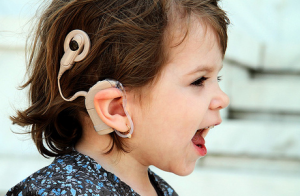Questions to ask
In the hearing assessment discussion, you should ask questions to ensure you understand the results and are clear on your options. The following questions should be addressed during the discussion.
How is my hearing affecting my communication?
Most people (but not all) lose their high frequency sounds first, and this affects hearing and communication in a particular way. You may have trouble in background noise, difficulty hearing women’s and children’s voices (these are more high-pitched than men’s voices).
You may miss parts of words, making some conversations difficult. You may need people to raise their voices, but experience pain and distortion of sound when things are turned up too loud. Discussing the effects of your hearing loss with your Audiologist or Audiometrist is important to understand the recommendations given to you.

Do I need a hearing aid?
If your hearing levels have dropped below normal, chances are you’ll need a hearing aid. Understanding why you need a hearing aid is important so it’s vital your clinician explains this clearly to you. You need to understand your hearing loss, acknowledge you are having some difficulties with your communication and accept that something has to be done.
If you understand, acknowledge and accept you’ll go a long way to ensuring you have a successful hearing aid experience.

Do I need a medical clearance?
This is a really important question.
If you have an auditory pathology that needs to be treated prior to getting a hearing aid, you’ll need medical clearance. After your hearing test, if the clinician finds any anomalies in the results, they will refer you back to your GP to either get further testing, or treatment for any pathology.
Once the condition has been further assessed and/or treated, it’s always best to get another hearing test to see if your hearing levels have changed, before you move forward with any required hearing aid fitting.

What hearing aid would suit me best?
This depends on a number of factors:
- your hearing levels;
- any existing outer ear problems;
- the shape of your ear canal;
- how much you can afford;
- any physical limitations you might have;
- what your lifestyle requirements are;
- if you want connectivity for the phone and streamed audio;
- if you need a Telecoil for church and other places that support this technology;
- if you listen to a lot of music;
- if you have tinnitus that is causing distress; and
- the style of hearing aid you would like.
All these factors should be discussed with your HHP to ensure you get a hearing aid that suits you and one that you are happy to wear.

What benefits will the hearing aid give me?
A hearing aid is an amplification device however these days the digital sophistication of most brands will assist your hearing in many ways. Your hearing aid will be set to your specific hearing levels – like glasses, a prescription is made up and the hearing aid set to this guideline. Depending on your needs a hearing aid will allow you to hear television at lower levels and hear conversations better. With higher level technology you’ll hear speech better in complex listening environments, hear clearly on the telephone and be able to access connectivity options to stream audio through Bluetooth.

Will it solve all my problems?
Again this depends on the level of technology of the hearing aid, how much your hearing levels have dropped and how long you’ve waited to optimise your hearing. The most difficult problem to solve is hearing speech when there is background noise.
Some people say that hearing aids change their life and they can now hear better in every situation (although hearing through walls won’t be happening – even people with normal hearing can’t do this). However, for some people, their hearing needs are complex and a hearing aid may not solve all of their communication problems. Time and effort is required.
The brain needs time to adjust to the re-stimulation of the auditory nerve – this can take up to six months. What we know is the sooner you decide to get hearing aids, the quicker you’ll get used to them and the more benefit they’ll provide.
Next Article –> Do You Want Fries With That?
Previous Article –> What Happens At The Hearing Test?
